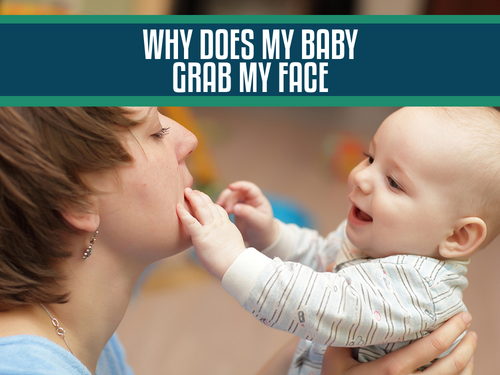How Often Should You Wash Your Hair? The Best Shampoo Routine for Healthy Hair

Yes—finger plays, clapping games, and dance routines that use hand gestures all help. Combine rhythm and repetition for deeper learning.
Send home simple activity ideas, kits, or worksheets. Offer short instructions and encourage family involvement. Regular practice builds lasting progress.
Try origami, sticker scenes, stringing pasta, or painting with Q-tips. Crafts that use small pieces build precision and control.

When it comes to hair care, one of the most common questions is: How often should you wash your hair? The answer isn’t one-size-fits-all—it depends on your hair type, lifestyle, and personal preferences. Washing too frequently can strip your scalp of natural oils, leading to dryness and irritation, while washing too infrequently can cause buildup and greasiness.
If you’re dealing with irritation or dryness, it can also help to check what’s in your products—especially common ingredients like parabens in shampoo.
Finding the perfect balance is key to maintaining healthy, strong, and vibrant hair.
In this guide, we’ll break down the best shampoo routine for different hair types, factors that influence how often you should wash your hair, and expert tips to keep your locks looking their best. Whether you have curly, oily, dry, or color-treated hair, we’ve got you covered with the ideal washing schedule and product recommendations.
Understanding Hair Washing: Why It Matters
Washing your hair removes dirt, sweat, excess oil (sebum), and product buildup from your scalp and hair strands. A good hair care routine helps keep your hair clean, healthy, and free from common problems like dandruff, dryness, or greasiness.
However, washing your hair too frequently can strip away natural oils, making your scalp and hair dry and brittle. On the other hand, not washing enough can lead to greasy hair, buildup, and even scalp irritation. So, how do you strike the right balance?
How Often Should You Wash Your Hair?
1. Washing Frequency Based on Hair Type

Fine or Thin Hair
Fine or thin hair tends to get oily more quickly because the scalp’s natural oils (sebum) travel easily down the hair shaft. This often results in limp, greasy-looking hair, especially at the roots. If you have fine hair, washing every 1-2 days can help keep it fresh and voluminous.
Tips for washing fine hair:
- Use a lightweight, volumizing shampoo that doesn’t weigh hair down.
- Avoid heavy conditioners at the roots—focus on applying conditioner only to the ends.
- If washing daily, choose a gentle, sulfate-free shampoo to prevent stripping too many natural oils.
- A dry shampoo between washes can help absorb excess oil and add lift.
Thick or Coarse Hair
Thicker, coarser hair has more volume and density, which means the scalp’s natural oils take longer to coat the strands. As a result, it doesn’t become greasy as quickly as fine hair. Washing every 3-4 days is typically enough to maintain cleanliness while keeping hair healthy and hydrated.
Tips for washing thick or coarse hair:
- Use a hydrating or moisturizing shampoo to prevent dryness.
- Apply a deep conditioner or hair mask once a week for added nourishment.
- If your hair starts feeling greasy between washes, try co-washing (washing with conditioner instead of shampoo) to refresh your hair without stripping natural oils.
- Detangle hair before washing to prevent knots and breakage.
Curly or Coily Hair
Curly and coily hair textures tend to be drier than straight hair because the natural oils from the scalp have a harder time traveling down the spiraled hair shaft. Washing too frequently can strip moisture, leading to dryness, brittleness, and frizz. Most hair experts recommend washing curly hair once or twice per week to maintain moisture balance.
Tips for washing curly or coily hair:
- Use a sulfate-free shampoo or a cleansing conditioner (co-wash) to gently clean the scalp without removing natural oils.
- Apply a leave-in conditioner or hair oil after washing to lock in moisture.
- Detangle with a wide-tooth comb or fingers while hair is wet and conditioned to minimize breakage.
- Try the “pineapple” method (loosely tying curls up) at night to keep hair fresh longer between washes.
Chemically Treated or Colored Hair
Chemically processed hair—including dyed, bleached, permed, or relaxed hair—is often more porous and prone to dryness and damage. Overwashing can cause color fading, increased brittleness, and loss of essential moisture. To preserve hair health and maintain vibrant color, it’s best to wash your hair every 3-5 days using a gentle, sulfate-free shampoo designed for colored hair.
Tips for washing chemically treated hair:
- Use color-safe shampoos and conditioners that are free from harsh sulfates and parabens.
- Wash with lukewarm or cool water instead of hot water to prevent color fading.
- Incorporate a deep conditioning treatment once a week to restore hydration.
- Limit the use of heat styling tools and apply a heat protectant spray before using them.
- If your roots feel greasy between washes, a dry shampoo can refresh your hair without excessive washing.
2. Washing Frequency Based on Scalp Type

Oily Scalp
If your scalp produces an excess amount of sebum, your hair may appear greasy or flat soon after washing. People with oily scalps often experience limp hair, buildup at the roots, and an increased risk of dandruff due to the accumulation of oil and dead skin cells. To manage an oily scalp, frequent washing—typically every day or every other day—is necessary to remove excess oil and prevent clogged hair follicles. Using a lightweight, sulfate-free shampoo designed for oily hair can help maintain balance without over-drying. Additionally, dry shampoo can be a useful tool to absorb oil and refresh the scalp between washes, reducing the need for excessive shampooing that may lead to rebound oil production.
Dry Scalp
A dry scalp lacks sufficient natural oils, which can cause itchiness, irritation, flakiness, and sometimes a tight, uncomfortable feeling. This condition may be exacerbated by cold weather, harsh shampoos, or frequent washing. If you have a dry scalp, it's best to limit hair washing to every 3-5 days to avoid stripping the scalp of its essential moisture. Opting for a hydrating shampoo and conditioner with ingredients like aloe vera, coconut oil, or shea butter can help nourish the scalp and reduce dryness. Incorporating a weekly deep conditioning treatment or a scalp oil massage can further promote hydration and reduce flaking.
Normal Scalp
A normal scalp strikes a balance between oil production and moisture retention, meaning it does not get excessively greasy or too dry. This allows for a more flexible hair-washing routine, typically every 2-3 days, depending on personal preference and lifestyle factors such as exercise or exposure to pollutants. Maintaining scalp health involves using a gentle shampoo that cleanses without stripping natural oils and a lightweight conditioner to keep hair smooth and manageable. Occasional exfoliation or a clarifying treatment can also help remove product buildup and keep the scalp refreshed.
3. How Lifestyle Affects Hair Washing Frequency

Active Lifestyle (Exercise & Sweating): Frequent workouts cause sweat and oil buildup, making hair feel greasy or itchy. Washing daily or every other day may be necessary, but rinsing with water or using dry shampoo can help between washes. Opting for sweat-resistant hairstyles like loose braids or buns can also minimize buildup.
Using Styling Products: Hairspray, gels, and mousses can leave residue, making hair feel heavy or greasy. Frequent use may require more washes to prevent buildup. A clarifying shampoo once a week helps remove stubborn product residue, but avoid overuse to prevent dryness.
Environmental Factors: Pollution, smoke, and humidity can make hair feel dirty or smell unpleasant. If exposed regularly, more frequent washing may be needed. Using a leave-in conditioner or wearing a hat can help protect hair from environmental damage.
Signs You Need to Wash Your Hair More Often
- Your scalp feels greasy or itchy.
- Your hair looks flat, limp, or dull.
- You notice buildup from styling products.
- You have dandruff or scalp irritation.
- Your hair smells unpleasant.
Signs You’re Washing Your Hair Too Often
- Your hair feels dry, brittle, or frizzy.
- You notice increased hair shedding or breakage.
- Your scalp feels tight or itchy.
- Your hair loses its natural shine.
Alternatives to Frequent Washing

If you want to wash your hair less often without compromising cleanliness and freshness, try these alternatives:
- Use Dry Shampoo: A quick and effective way to extend the time between washes, dry shampoo absorbs excess oil, adds volume, and refreshes your hair. Simply spray or sprinkle it onto your roots, let it sit for a minute or two, then brush or massage it in for a cleaner, fresher look. Opt for a tinted dry shampoo if you have dark hair to avoid a white residue.
- Rinse with Water: If your hair isn’t too oily but feels sweaty or slightly dirty, a simple rinse with lukewarm water can help remove sweat, light dirt, and product buildup without stripping away natural oils. This is especially useful for people with drier hair types or those who exercise frequently but want to avoid over-washing.
- Co-Washing (Conditioner-Only Washing): Ideal for curly, textured, or dry hair, co-washing involves cleansing your hair using only a lightweight, silicone-free conditioner. This method helps maintain moisture while gently removing dirt and buildup. Choose a co-wash formula specifically designed for cleansing, and massage your scalp thoroughly to prevent product accumulation.
Stretching wash days can mean more brushing and styling, so it’s worth keeping how to prevent split ends in mind.
You May Also Like: Unlocking the Health Benefits of Cold Showers
How to Choose the Right Shampoo & Conditioner

Your choice of shampoo and conditioner can make a big difference in how often you need to wash your hair. Here are some recommendations:
For Oily Hair
If your scalp produces excess oil, opt for a clarifying shampoo that effectively removes buildup and grease without stripping essential moisture. Look for ingredients like tea tree oil, witch hazel, or citrus extracts, which help control oil production. Avoid heavy conditioners—stick to lightweight, oil-free formulas or focus only on conditioning the ends to prevent your roots from getting greasy too quickly.
For Dry Hair
Hydration is key for dry hair, so choose a moisturizing, sulfate-free shampoo that gently cleanses without stripping natural oils. Look for ingredients like argan oil, shea butter, or glycerin, which help lock in moisture and prevent further dryness. Pair your shampoo with a deep conditioner or a leave-in treatment to nourish and soften brittle strands.
For Color-Treated Hair
Dyed hair is prone to fading and damage, so it's important to use a color-safe, sulfate-free shampoo that gently cleanses while preserving vibrancy. Ingredients like keratin, antioxidants, and UV filters help protect color from fading due to sun exposure and washing. Follow up with a color-protecting conditioner enriched with silk proteins or coconut oil to maintain shine and softness.
For Curly Hair
Curly hair tends to be drier and more fragile, so hydration is crucial. Choose a moisturizing, sulfate-free shampoo with natural oils like coconut, argan, or jojoba oil to enhance curl definition while preventing frizz. Conditioners with aloe vera, shea butter, or protein-based formulas help keep curls bouncy and well-defined. For extra hydration, consider using a co-wash (conditioning cleanser) instead of shampooing daily to retain moisture.
You May Also Like: How to Cook Cauliflower Rice: A Simple Cauliflower Rice Recipe to Make Cauliflower Rice Perfectly Every Time
How Often Should You Wash Your Hair FAQs:
1. How many times a week should you shampoo your hair?
Most people shampoo 2–4 times per week, but the ideal number depends on oil production, hair texture, and styling habits. Oily scalps may need shampooing daily or every other day, while dry, curly, coily, or chemically treated hair often does better with shampooing 1–2 times per week to prevent dryness and breakage.
2. How often should you wash your hair if you have an oily scalp?
If you have an oily scalp, washing every day or every other day can help prevent buildup and greasiness. Use a lightweight shampoo designed for oily hair, avoid heavy conditioner on the roots, and consider dry shampoo between washes to reduce excess oil without overwashing.
3. Is it bad to wash your hair every day?
Daily washing isn’t automatically bad—it depends on your scalp and hair type. People with oily scalps, fine hair, heavy sweating, or frequent product use may need daily or near-daily washing. If your hair feels dry, frizzy, brittle, or your scalp feels tight, that’s a sign you may be shampooing too often or using a shampoo that’s too harsh.
4. How do you know if you’re washing your hair too much or not enough?
You may be washing too often if your hair becomes dry, frizzy, dull, or breaks easily, or if your scalp feels irritated or tight. You may not be washing enough if your roots look greasy, your scalp feels itchy, there’s product buildup, or your hair starts to smell. The “right” schedule is the one that keeps your scalp calm and your hair manageable.
5. What can you do to wash your hair less often without looking greasy?
To extend time between washes, use dry shampoo on the roots, rinse with water after workouts, or try co-washing if you have curly/dry hair. A clarifying shampoo once a week can help remove buildup (especially if you use styling products), while keeping your regular shampoo gentle to avoid stripping your scalp.
You May Also Like: Sleep Apnea: Symptoms and Causes




